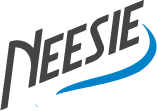Mastering the Game: Strategies for Athletic Excellence and Peak Performance
Understanding the Foundations of Athletic Excellence
Achieving athletic excellence requires a comprehensive understanding of both physical conditioning and mental fortitude. Mastery in any sport demands not only natural talent but also disciplined training, proper nutrition, and a strategic approach. To excel, athletes must prioritize developing their physical capabilities through targeted exercises that enhance strength, agility, and endurance. Equally important is the cultivation of a resilient mindset that can withstand the pressures of competition and the rigors of intensive training regimens.
Moreover, athletes need to explore innovative strategies that can give them a competitive edge. This includes keeping abreast of advancements in sports science and technology that can optimize performance. For instance, the use of data analytics to monitor performance metrics or the implementation of recovery protocols like cryotherapy are just some of the methods athletes can employ. Additionally, maintaining an awareness of emerging trends such as sports betting sites can provide athletes with a broader understanding of the sports industry landscape, potentially uncovering insights that can redirect their training focus for improved outcomes.
Developing a Winning Mindset
The psychological aspect of competing is as critical as physical preparation. Athletes must cultivate a winning mindset to overcome challenges and remain focused on their goals. Success in sports often hinges on mental strength and the ability to perform under pressure. Techniques such as visualization, goal setting, and mindfulness can help athletes maintain focus and manage stress. Visualization involves imagining successful performance scenarios, thereby reinforcing confidence, while goal setting ensures clear targets and a roadmap for achievement.
Athletes can also benefit from working with coaches and sports psychologists to develop mental resilience. These professionals can provide valuable insights into overcoming mental barriers and improving concentration. Embracing a growth mindset, where setbacks are viewed as opportunities for learning rather than failures, can drive continuous improvement. By embedding these psychological strategies into their training routines, athletes enhance their ability to handle competitive pressures and achieve peak performance, fostering a mindset that celebrates progress and resilience.
Fueling Success with Nutrition and Recovery
Proper nutrition and recovery are cornerstones of athletic performance. An athlete needs to consume a balanced diet that provides the necessary energy and nutrients to fuel their bodies during training and competition. Macronutrients like carbohydrates, proteins, and fats must be consumed in the right proportions to support energy needs and muscle recovery. Hydration is also critical to maintaining optimal performance levels and preventing issues such as cramps and fatigue.
Recovery practices are equally important as they allow the body to repair and strengthen. Incorporating techniques such as stretching, massage, and adequate rest can help prevent injuries and ensure that athletes are ready for future challenges. Sleep, often underestimated, plays a crucial role in recovery and performance, with sufficient rest contributing to both physical recovery and mental sharpness. By prioritizing both nutrition and recovery, athletes can sustain high levels of performance over extended periods.
Embracing Technology for Enhanced Performance
The integration of technology into sports training regimes has revolutionized the way athletes train and compete. Wearable devices now offer real-time feedback on various performance metrics, enabling athletes to adjust their training plans dynamically. High-speed cameras and motion analysis software aid in refining techniques by providing detailed insights into movement patterns. These technological tools allow for a more scientific approach to training, resulting in more efficient and effective outcomes.
Furthermore, virtual reality (VR) is being used to simulate competitive environments, providing athletes with immersive experiences that can enhance tactical understanding and decision-making skills. This technology can simulate different scenarios, allowing athletes to prepare for a variety of situations they might encounter during actual competitions. The continuous evolution of technology not only helps fine-tune athletic skills but also fosters innovative ways to approach training, ultimately contributing to peak performance.
About the Website
lelivros.app is an invaluable resource for sports enthusiasts looking to deepen their understanding of athletic excellence and performance strategies. By providing a breadth of information on techniques, nutrition, mental conditioning, and the latest technologies in sports, the website serves as a comprehensive guide for athletes at all levels. From amateurs seeking to improve their game to seasoned professionals aiming to reach new heights, the website offers a plethora of resources tailored to enhance athletic performance.
In addition to insights on training and performance, the site also covers broader trends in the sports industry, such as technological advancements and the role of analytics. This context provides athletes and sports professionals with a holistic perspective on the ever-evolving sports landscape. By keeping up with the latest developments featured on the site, athletes can continue to refine their performance strategies, ensuring they remain at the cutting edge of excellence and peak performance.
